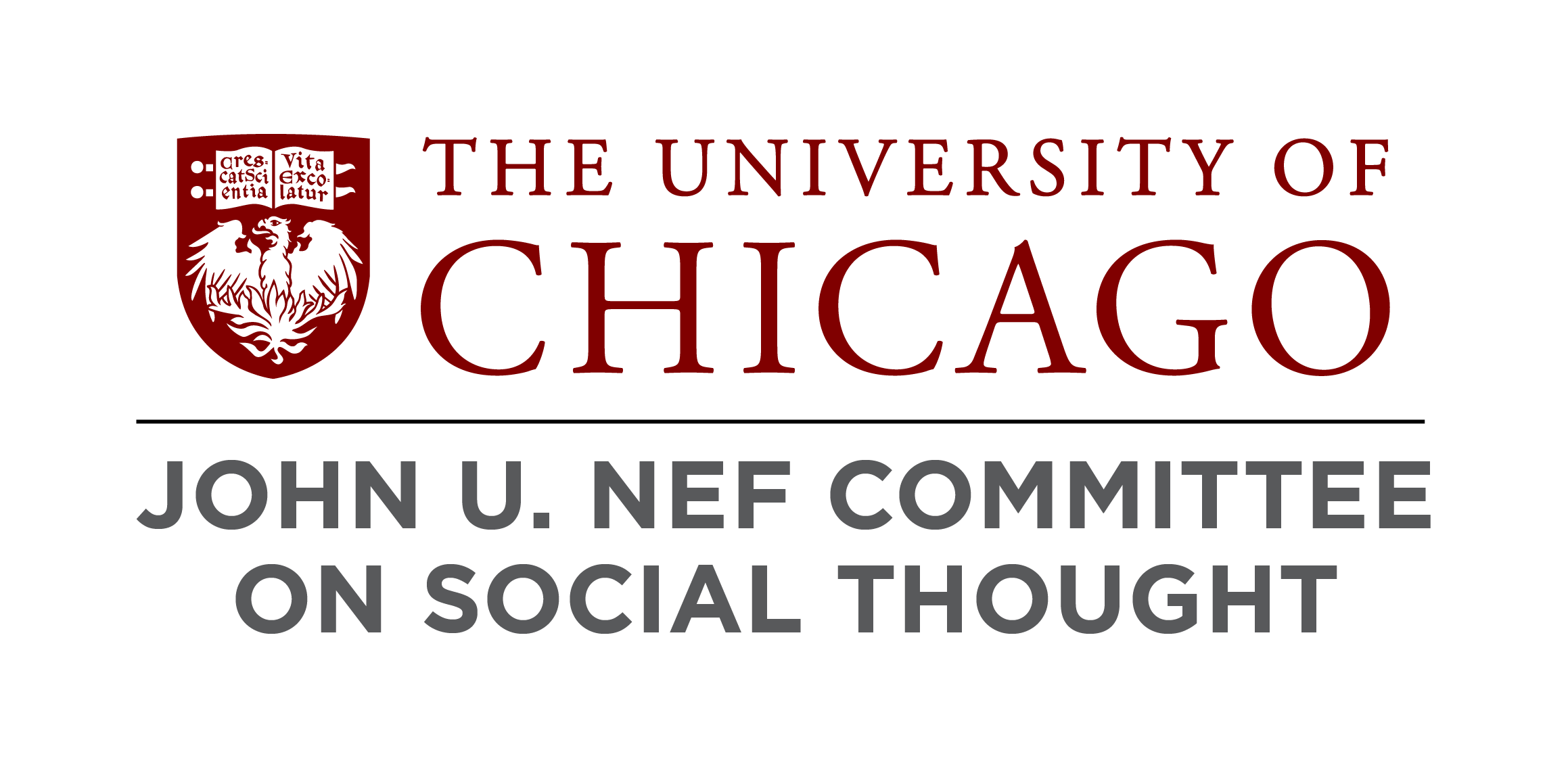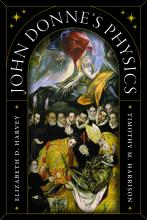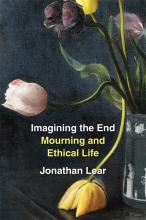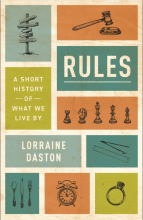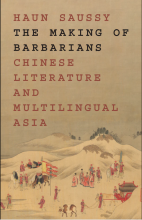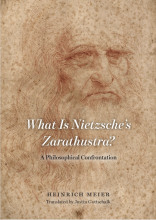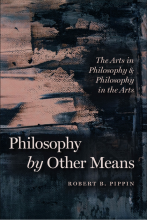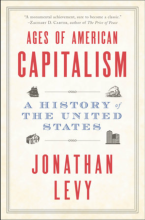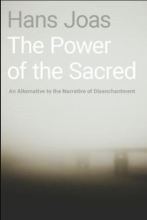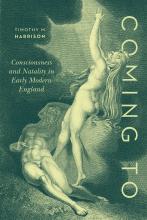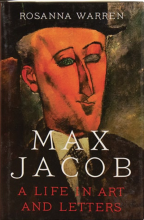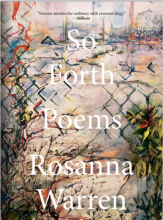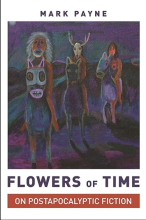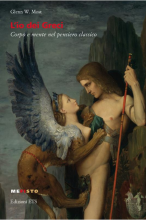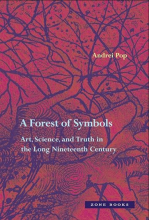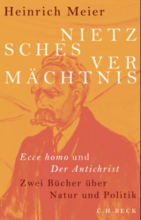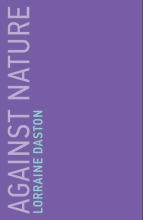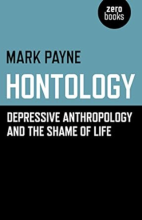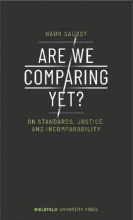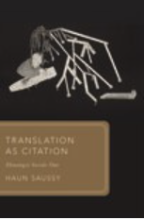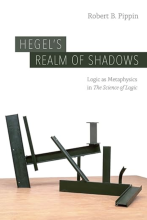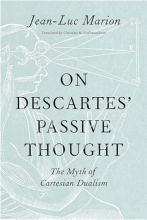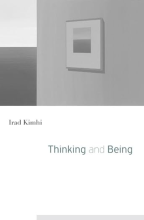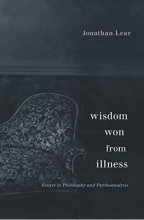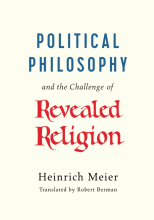Faculty Books
The following is a list of the most recent publications by Committee on Social Thought faculty. For comprehensive publishing lists, please visit individual faculty pages.
Timothy Harrison and Elizabeth Harvey , John Donne's Physics, University of Chicago Press, 2024. A reimagining of Devotions upon Emergent Occasions as an original treatment of human life shaped by innovations in seventeenth-century science and medicine. In 1624, poet and preacher John Donne published Devotions upon Emergent Occasions, a book that recorded his near-death experience during a deadly epidemic in London. Four hundred years later, in the aftermath of our own pandemic, Harvey and Harrison show how Devotions crystalizes the power, beauty, and enduring strangeness of Donne’s thinking. Arguing that Donne saw human life in light of emergent ideas in the study of nature (physics) and the study of the body (physick), John Donne’s Physics reveals Devotions as a culminating achievement, a radically new literary form that uses poetic techniques to depict Donne’s encounter with death in a world transformed by new discoveries and knowledge systems.
Jonathan Lear, Imagining the End: Mourning and the Good Life, Harvard University Press, 2022. Imagine the end of the world. Now think about the end―the purpose―of life. They’re different exercises, but in Jonathan Lear’s profound reflection on mourning and meaning, these two kinds of thinking are also connected: related ways of exploring some of our deepest questions about individual and collective values and the enigmatic nature of the good. Lear is one of the most distinctive intellectual voices in America, a philosopher and psychoanalyst who draws from ancient and modern thought, personal history, and everyday experience to help us think about how we can flourish, or fail to, in a world of flux and finitude that we only weakly control. His range is on full display in Imagining the End as he explores seemingly disparate concerns to challenge how we respond to loss, crisis, and hope. He considers our bewilderment in the face of planetary catastrophe. He examines the role of the humanities in expanding our imaginative and emotional repertoire. He asks how we might live with the realization that cultures, to which we traditionally turn for solace, are themselves vulnerable. He explores how mourning can help us thrive, the role of moral exemplars in shaping our sense of the good, and the place of gratitude in human life. Along the way, he touches on figures as diverse as Aristotle, Abraham Lincoln, Sigmund Freud, and the British royals Harry and Meghan. Written with Lear’s characteristic elegance, philosophical depth, and psychological perceptiveness, Imagining the End is a powerful meditation on persistence in an age of turbulence and anxiety.
Lorraine Daston, Rules: A Short History of What We Live By, Princeton University Press, 2022. Rules order almost every aspect of our lives. They set our work hours, dictate how we drive and set the table, tell us whether to offer an extended hand or cheek in greeting, and organize the rites of life, from birth through death. We may chafe under the rules we have, and yearn for ones we don’t, yet no culture could do without them. In Rules, historian Lorraine Daston traces their development in the Western tradition and shows how rules have evolved from ancient to modern times. Drawing on a rich trove of examples, including legal treatises, cookbooks, military manuals, traffic regulations, and game handbooks, Daston demonstrates that while the content of rules is dazzlingly diverse, the forms that they take are surprisingly few and long-lived. Daston uncovers three enduring kinds of rules: the algorithms that calculate and measure, the laws that govern, and the models that teach. She vividly illustrates how rules can change—how supple rules stiffen, or vice versa, and how once bothersome regulations become everyday norms. Rules have been devised for almost every imaginable activity and range from meticulous regulations to the laws of nature. Daston probes beneath this variety to investigate when rules work and when they don’t, and why some philosophical problems about rules are as ancient as philosophy itself while others are as modern as calculating machines. Rules offers a wide-angle view on the history of the constraints that guide us—whether we know it or not.
Haun Saussy, The Making of Barbarians: Chinese Literature and Multilingual Asia, Princeton University Press, 2022. Debates on the canon, multiculturalism, and world literature often take Eurocentrism as the target of their critique. But literature is a universe with many centers, and one of them is China. The Making of Barbarians offers an account of world literature in which China, as center, produces its own margins. Here Sinologist and comparatist Haun Saussy investigates the meanings of literary translation, adaptation, and appropriation on the boundaries of China long before it came into sustained contact with the West. When scholars talk about comparative literature in Asia, they tend to focus on translation between European languages and Chinese, Korean, and Japanese, as practiced since about 1900. In contrast, Saussy focuses on the period before 1850, when the translation of foreign works into Chinese was rare because Chinese literary tradition overshadowed those around it. The Making of Barbarians looks closely at literary works that were translated into Chinese from foreign languages or resulted from contact with alien peoples. The book explores why translation was such an undervalued practice in premodern China, and how this vast and prestigious culture dealt with those outside it before a new group of foreigners—Europeans—appeared on the horizon.
Heinrich Meier, What is Nietzsche's Zarathustra?, University of Chicago Press, 2021. Thus Spoke Zarathustra is Nietzsche’s most famous and most puzzling work, one in which he makes the greatest use of poetry to explore the questions posed by philosophy. But in order to understand the movement of this drama, we must first understand the character of its protagonist: we must ask, What Is Nietzsche’s Zarathustra? Heinrich Meier attempts to penetrate the core of the drama, following as a guiding thread the question of whether Zarathustra is a philosopher or a prophet, or, if he is meant to be both, whether Zarathustra is able to unite philosopher and prophet in himself. Via a close reading that uncovers the book’s hidden structure, Meier develops a highly stimulating and original interpretation of this much discussed but still ill-understood masterwork of German poetic prose. In the process, he carefully overturns long-established canons in the academic discourse of Nietzsche-interpretation. The result is a fresh and surprising grasp of Nietzsche’s well-known teachings of the overman, the will to power, and the eternal return.
Robert B. Pippin, Philosophy by Other Means: The Arts in Philosophy and Philosophy in the Arts, University of Chicago Press, 2021. Throughout his career, Robert B. Pippin has examined the relationship between philosophy and the arts. With his writings on film, literature, and visual modernism, he has shown that there are aesthetic objects that cannot be properly understood unless we acknowledge and reflect on the philosophical concerns that are integral to their meaning. His latest book, Philosophy by Other Means, extends this trajectory, offering a collection of essays that present profound considerations of philosophical issues in aesthetics alongside close readings of novels by Henry James, Marcel Proust, and J. M. Coetzee. The arts hold a range of values and ambitions, offering beauty, playfulness, and craftsmanship while deepening our mythologies and enriching the human experience. Some works take on philosophical ambitions, contributing to philosophy in ways that transcend the discipline’s traditional analytic and discursive forms. Pippin’s claim is twofold: criticism properly understood often requires a form of philosophical reflection, and philosophy is impoverished if it is not informed by critical attention to aesthetic objects. In the first part of the book, he examines how philosophers like Kant, Hegel, and Adorno have considered the relationship between art and philosophy. The second part of the book offers an exploration of how individual artworks might be considered forms of philosophical reflection. Pippin demonstrates the importance of practicing philosophical criticism and shows how the arts can provide key insights that are out of reach for philosophy, at least as traditionally understood.
Jonathan Levy, Ages of American Capitalism: A History of the United States, Penguin Random House, 2021. Today, in the midst of a new economic crisis and severe political discord, the nature of capitalism in United States is at a crossroads. Since the market crash and Great Recession of 2008, historian Jonathan Levy has been teaching a course to help his students understand everything that had happened to reach that disaster and the current state of the economy, but in doing so he discovered something more fundamental about American history. Now, in an ambitious single-volume history of the United States, he reveals how, from the beginning of U.S. history to the present, capitalism in America has evolved through four distinct ages and how the country’s economic evolution is inseparable from the nature of American life itself. In Ages of American Capitalism, Levy proves that, contrary to political dogma, capitalism in the United States has never been just one thing. Instead, it has morphed throughout the country's history - and it's likely changing again right now.
Hans Joas, The Power of the Sacred: An Alternative to the Narrative of Disenchantment, Oxford University Press, 2021 (English translation, forthcoming). In The Power of the Sacred, Hans Joas develops the fundamentals of a new sociological theory of religion by first reconstructing existing theories, from the eighteenth century to the present. Through a critical reading and reassessment of key texts in the three empirical disciplines of history, psychology, and sociology of religion, including the works of David Hume, J.G. Herder, Friedrich Schleiermacher, William James, Emile Durkheim, and Ernst Troeltsch, Joas presents an understanding of religion that lays the groundwork for a thorough study of Max Weber's views on disenchantment. After deconstructing Weber's highly ambiguous use of the concept, Joas proposes an alternative to the narratives of disenchantment and secularization which have dominated debates on the topic. He constructs a novel interpretation that takes into account the dynamics of ever new sacralizations, their normative evaluation in the light of a universalist morality as it first emerged in the "Axial Age," and the dangers of the misuse of religion in connection with the formation of power.
Timothy Harrison, Coming To: Consciousness and Natality in Early Modern England, University of Chicago press, 2020. In Coming To, Timothy M. Harrison uncovers the forgotten role of poetry in the history of the idea of consciousness. Drawing our attention to a sea change in the English seventeenth century, when, over the course of a half century, “conscience” made a sudden shift to “consciousness,” he traces a line that leads from the philosophy of René Descartes to the poetry of John Milton, from the prenatal memories of theologian Thomas Traherne to the unresolved perspective on natality, consciousness, and ethics in the philosophy of John Locke. Each of these figures responded to the first-person perspective by turning to the origins of how human thought began. Taken together, as Harrison shows, this unlikely group of thinkers sheds new light on the emergence of the concept of consciousness and the significance of human natality to central questions in the fields of literature, philosophy, and the history of science.
Rosanna Warren, Max Jacob: A Life in Art and Letters, W.W. Norton, 2020. Though less of a household name than his contemporaries in early twentieth century Paris, Jewish homosexual poet Max Jacob was Pablo Picasso’s initiator into French culture, Guillaume Apollinaire’s guide out of the haze of symbolism, and Jean Cocteau’s loyal friend. As Picasso reinvented painting, Jacob helped to reinvent poetry with compressed, hard-edged prose poems and synapse-skipping verse lyrics, the product of a complex amalgamation of Jewish, Breton, Parisian, and Roman Catholic influences.In Max Jacob, the poet’s life plays out against the vivid backdrop of bohemian Paris from the turn of the twentieth century through the divisions of World War II. Acclaimed poet Rosanna Warren transports us to Picasso’s ramshackle studio in Montmartre, where Cubism was born; introduces the artists gathered at a seedy bar on the left bank, where Max would often hold court; and offers a front-row seat to the artistic squabbles that shaped the Modernist movement.More than thirty years in the making, this landmark biography offers a compelling, tragic portrait of Jacob as a man and as an artist alongside a rich study of his groundbreaking poetry—in Warren’s own stunning translations. Max Jacob is a nuanced, deeply researched, and essential contribution to Modernist scholarship.
Rosanna Warren, So Forth: Poems, W.W. Norton, 2020. With irony, in mourning tinged with eros, one of our most extraordinary poets blends the personal and the political to meditate on damage, aging, and injustice. The poems in So Forth surge back in memory, pondering guilt and forgiveness. Consciousness flows from singular to plural; identity in these poems does a round dance with other personae, with formidable women artists of the past in the powerful sequence “Legende of Good Women,” with pre-Socratic philosophers, and with lovers, children, and strangers—the strangest of whom is the face in the mirror. In response to griefs both historical and contemporary, So Forth contemplates the quest for the holy and traditions of the sacred.
Mark Payne, Flowers of Time: On Postapocalyptic Fiction, Princeton University Press, 2020. The literary lineage of postapocalyptic fiction—stories set after civilization’s destruction—is a long one, spanning the biblical tale of Noah and Hesiod’s Works and Days to the works of Mary Shelley, Octavia Butler, Cormac McCarthy, and many others. Traveling from antiquity to the present, Flowers of Time reveals how postapocalyptic fiction differs from other genres—pastoral poetry, science fiction, and the maroon narrative—that also explore human capabilities beyond the constraints of civilization. Mark Payne places postapocalyptic fiction into conversation with such theorists as Aristotle, Jean-Jacques Rousseau, Claude Lévi-Strauss, and Carl Schmitt, illustrating how the genre functions as political theory in fictional form.Flowers of Time looks at how fictional narratives set after the world’s devastation represent new conditions and possibilities for life and humanity.
Glenn Most, L'Io dei Greci: Corpo e mente nel pensiero classico, Edizioni ETS, 2019. Il corpo dell’atleta olimpico era solo “bello”? Come si difendevano i Greci dalle emozioni? Era possibile, nell’antichità, provare un amore postumo? Che genere di “pazzia” rappresentavano le tragedie greche? E Narciso, era un narcisista? Non c’è dubbio che la psicologia, l’arte e la letteratura moderne abbiano attinto ai miti greci come depositari di caratteri e di narrative che possano illuminare gli angoli più oscuri dell’animo umano. E non c’è dubbio che tra i miti greci e le moderne concezioni dell’io vi sia una relazione intima, che non si limita alla mera suggestione. Ma la psyché non è la psiche. Il modo in cui psicologi, poeti, drammaturghi, artisti hanno attinto non solo ai miti, ma anche alle trattazioni psicologiche tecniche del pensiero classico, è un complesso intrigo di significazione oggettiva e di immaginazione creativa. Un grande classicista ci aiuta a sciogliere l’intrigo. I cinque studi qui raccolti, filosoficamente affascinanti e filologicamente rigorosi, sono esemplari di un approccio dialettico ed ermeneutico all’io antico e a quello moderno.
Andrei Pop, A Forest of Symbols: Art, Science, and Truth in the Long Nineteenth Century, Zone Books, 2019. In A Forest of Symbols, Andrei Pop presents a groundbreaking reassessment of those writers and artists in the late nineteenth century associated with the Symbolist movement. For Pop, “symbolist” denotes an art that is self-conscious about its modes of making meaning, and he argues that these symbolist practices, which sought to provide more direct access to viewers and readers by constant revision of its material means of meaning-making (brushstrokes on a canvas, words on a page), are crucial to understanding the genesis of modern art. The symbolists saw art not as a social revolution, but as a revolution in sense and how to conceptualize the world. The concerns of symbolist painters and poets were shared to a remarkable degree by theoretical scientists of the period, who were dissatisfied with the strict empiricism dominant in their disciplines, which made shared knowledge seem unattainable.
Heinrich Meier, Nietzsches Vermächtnis: Ecce Homo und Der Antichrist, Zwei Bücher über Natur und Politik, C.H. Beck, 2019. "Ecce homo" und "Der Antichrist", die beiden Schriften, die Nietzsche für den Druck vorbereitete, aber nicht mehr selbst veröffentlichen konnte, verhandeln die miteinander verbundenen Fragen, was ein Philosoph ist und was ein philosophisches Leben ausmacht. "Nietzsches Vermächtnis" begreift die Zwillingsbücher, die bisher nicht in ihrer Zusammen gehörigkeit verstanden wurden, als das späte Hauptwerk, das an die Stelle des von Nietzsche verworfenen "Willens zur Macht" tritt. "Umwertung aller Werte" nennt Nietzsche die Ausrichtung des Lebens an einem Typus höchster Bejahung, die er mit "Ecce homo" und "Der Antichrist" ins Werk zu setzen beansprucht. Das Zweigespann, in dem sein OEuvre zum Abschluss kommt, stellt sich indes zugleich in den Dienst der entschiedensten Verneinung. Es trägt die schärfste Kritik vor, der ein Philosoph das Christentum unterzog. Der Autor tritt mit dem Gestus des Gründers und Gesetzgebers auf, der die Geschichte der Menschheit in zwei Stücke bricht. Aber in beiden Büchern gilt sein vorrangiges Interesse der Natur des Philosophen. Wie das Ja und das Nein zusammengehen, wie Natur und Politik sich näher bestimmen, wie Nietzsches Intention das politischphilosophische Doppelgesicht regiert, das ist Gegenstand von Heinrich Meiers seit langem angekündigter Auseinandersetzung. Sie nimmt Nietzsches Philosophie im Ganzen neu in den Blick.
Lorraine Daston, Against Nature. MIT Press, 2019. In this short, pithy work of philosophical anthropology, Daston asks why we continually seek moral orders in natural orders, despite so much good counsel to the contrary. She outlines three specific forms of natural order in the Western philosophical tradition—specific natures, local natures, and universal natural laws—and describes how each of these three natural orders has been used to define and oppose a distinctive form of the unnatural. She argues that each of these forms of the unnatural triggers equally distinctive emotions: horror, terror, and wonder.
Mark Payne, Hontology: Depressive anthropology and the shame of life. Zero Books, 2018. Jacques Derrida’s Specters of Marx has had an enormous influence on recent thought about the fate of human capabilities in late capitalism, especially in Europe. Hontology explores a road not taken in Specters of Marx - the idea that shame is the route by which we access the capabilities for living that are abrogated in modernity. More particularly still, the book considers the loss of the New World as an horizon in which these abrogated capabilities were still in play, and the inhabitants of the New World as presenting forms of life before which Europeans felt shame in comparison with their own. Finally, the book discusses what might take the place of the New World now that its productive horizon of shame has receded from view.
Haun Saussy, Are We Comparing Yet: On Standards, Justice, and Incomparability, Bielefeld University Press, 2018. Debates about the possibility of an open culture – or indeed about the possibility of an open debate about the openness of culture – often turn on questions of standards. But since no benchmark can be absolute, judgement is a proliferation of comparisons. Through a series of case studies in everyday and academic comparison (literature, history, politics, philosophy), Haun Saussy calls out the typical vices of comparison and proposes ways to unseat them. For however much it is abused, distorted, and manipulated, comparison retains an essential link to the idea of justice.
Haun Saussy, Translation as Citation: Zhuangzi Inside Out, Oxford University Press, 2018. This volume examines translation from many different angles: it explores how translations change the languages in which they occur, how works introduced from other languages become part of the consciousness of native speakers, and what strategies translators must use to secure acceptance for foreign works. Haun Saussy argues that translation doesn't amount to the composition, in one language, of statements equivalent to statements previously made in another language. Rather, translation works with elements of the language and culture in which it arrives, often reconfiguring them irreversibly: it creates, with a fine disregard for precedent, loan-words, calques, forced metaphors, forged pasts, imaginary relationships, and dialogues of the dead. Creativity, in this form of writing, usually considered merely reproductive, is the subject of this book. The volume takes the history of translation in China, from around 150 CE to the modern period, as its source of case studies. When the first proponents of Buddhism arrived in China, creativity was forced upon them: a vocabulary adequate to their purpose had yet to be invented. A Chinese Buddhist textual corpus took shape over centuries despite the near-absence of bilingual speakers. One basis of this translating activity was the rewriting of existing Chinese philosophical texts, and especially the most exorbitant of all these, the collection of dialogues, fables, and paradoxes known as the Zhuangzi. The Zhuangzi also furnished a linguistic basis for Chinese Christianity when the Jesuit missionary Matteo Ricci arrived in the later part of the Ming dynasty and allowed his friends and associates to frame his teachings in the language of early Daoism. It would function as well when Xu Zhimo translated from The Flowers of Evil in the 1920s. The chance but overdetermined encounter of Zhuangzi and Baudelaire yielded a 'strange music' that retroactively echoes through two millennia of Chinese translation, outlining a new understanding of the translator's craft that cuts across the dividing lines of current theories and critiques of translation.
Robert B. Pippin, Hegel's Realm of Shadows: Logic as Metaphysics in the Science of Logic. University of Chicago Press, 2018. Pippin offers here a bold, original interpretation of Hegel’s claim that only now, after Kant’s critical breakthrough in philosophy, can we understand how logic can be a metaphysics. Pippin addresses Hegel’s deep, constant reliance on Aristotle’s conception of metaphysics, the difference between Hegel’s project and modern rationalist metaphysics, and the links between the “logic as metaphysics” claim and modern developments in the philosophy of logic. Pippin goes on to explore many other facets of Hegel’s thought, including the significance for a philosophical logic of the self-conscious character of thought, the dynamism of reason in Kant and Hegel, life as a logical category, and what Hegel might mean by the unity of the idea of the true and the idea of the good in the “Absolute Idea.” The culmination of Pippin’s work on Hegel and German idealism, no Hegel scholar or historian of philosophy will want to miss this book.
Jean-Luc Marion, On Descartes' Passive Thought: The Myth of Cartesian Dualism, University of Chicago Press, 2018. Descartes has long been associated with mind-body dualism, but Marion argues here that this is a historical misattribution, popularized by Malebranche and popular ever since both within the academy and with the general public. Actually, Marion shows, Descartes held a holistic conception of body and mind. He called it the meum corpus, a passive mode of thinking, which implies far more than just pure mind—rather, it signifies a mind directly connected to the body: the human being that I am. Understood in this new light, the Descartes Marion uncovers through close readings of works such as Passions of the Soul resists prominent criticisms leveled at him by twentieth-century figures like Husserl and Heidegger, and even anticipates the non-dualistic, phenomenological concepts of human being discussed today. This is a momentous book that no serious historian of philosophy will be able to ignore.
Irad Kimhi, Thinking and Being, Harvard University Press, 2018. Opposing a long-standing orthodoxy of the Western philosophical tradition running from ancient Greek thought until the late nineteenth century, Frege argued that psychological laws of thought—those that explicate how we in fact think—must be distinguished from logical laws of thought—those that formulate and impose rational requirements on thinking. Logic does not describe how we actually think, but only how we should. Yet by thus sundering the logical from the psychological, Frege was unable to explain certain fundamental logical truths, most notably the psychological version of the law of non-contradiction—that one cannot think a thought and its negation simultaneously. Irad Kimhi’s Thinking and Being marks a radical break with Frege’s legacy in analytic philosophy, exposing the flaws of his approach and outlining a novel conception of judgment as a two-way capacity. In closing the gap that Frege opened, Kimhi shows that the two principles of non-contradiction—the ontological principle and the psychological principle—are in fact aspects of the very same capacity, differently manifested in thinking and being. As his argument progresses, Kimhi draws on the insights of historical figures such as Aristotle, Kant, and Wittgenstein to develop highly original accounts of topics that are of central importance to logic and philosophy more generally. Self-consciousness, language, and logic are revealed to be but different sides of the same reality. Ultimately, Kimhi’s work elucidates the essential sameness of thinking and being that has exercised Western philosophy since its inception.
Jonathan Lear, Wisdom Won from Illness: Essays in Philosophy and Psychoanalysis, Harvard University Press, 2017. Wisdom Won from Illness brings into conversation two fields of humane inquiry—psychoanalysis and moral philosophy—that seem to have little to say to each other but which, taken together, form a basis for engaged ethical thought about how to live. Jonathan Lear begins by looking to the ancient Greek philosophers for insight into what constitutes the life well lived. Socrates said the human psyche should be ruled by reason, and much philosophy as well as psychology hangs on what he meant. For Aristotle, reason organized and presided over the harmonious soul; a wise person is someone capable of a full, happy, and healthy existence. Freud, plumbing the depths of unconscious desires and pre-linguistic thoughts, revealed just how unharmonious the psyche could be. Attuned to the stresses of modern existence, he investigated the myriad ways people fall ill and fail to thrive. Yet he inherited from Plato and Aristotle a key insight: that the irrational part of the soul is not simply opposed to reason. It is a different manner of thinking: a creative intelligence that distorts what it seeks to understand. Can reason absorb the psyche’s nonrational elements into a whole conception of the flourishing, fully realized human being?
Heinrich Meier, Political Philosophy and the Challenge of Revealed Religion, University of Chicago Press, 2017. Heinrich Meier’s guiding insight in Political Philosophy and the Challenge of Revealed Religion is that philosophy must prove its right and its necessity in the face of the claim to truth and demand obedience of its most powerful opponent, revealed religion. Philosophy must rationally justify and politically defend its free and unreserved questioning, and, in doing so, turns decisively to political philosophy.In the first of three chapters, Meier determines four intertwined moments constituting the concept of political philosophy as an articulated and internally dynamic whole. The following two chapters develop the concept through the interpretation of two masterpieces of political philosophy that have occupied Meier’s attention for more than thirty years: Leo Strauss’s Thoughts on Machiavelli and Jean-Jacques Rousseau’s Social Contract. Meier provides a detailed investigation of Thoughts on Machiavelli, with an appendix containing Strauss’s original manuscript headings for each of his paragraphs. Linking the problem of Socrates (the origin of political philosophy) with the problem of Machiavelli (the beginning of modern political philosophy), while placing between them the political and theological claims opposed to philosophy, Strauss’s most complex and controversial book proves to be, as Meier shows, the most astonishing treatise on the challenge of revealed religion. The final chapter, which offers a new interpretation of the Social Contract, demonstrates that Rousseau’s most famous work can be adequately understood only as a coherent political-philosophic response to theocracy in all its forms.
 THE UNIVERSITY OF CHICAGO
THE UNIVERSITY OF CHICAGO

